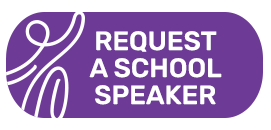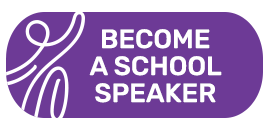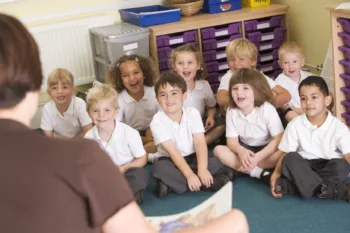Here you can find out what school speakers do, how to book a free speaker visit, and how you can become a school speaker yourself.
If you are not a school or college but are interested in hearing from a humanist speaker, please visit our community speakers page.
Humanists UK school speakers
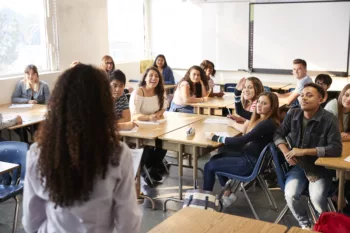 Humanists UK school speakers are trained and experienced volunteers who help schools across England, Wales, and Northern Ireland to teach about humanism. Using their life experience and knowledge, our school speakers can add a personal dimension to young people’s study of humanism that goes ‘beyond the textbook’. They offer a range of services free of charge and will fit around schools’ needs and requirements.
Humanists UK school speakers are trained and experienced volunteers who help schools across England, Wales, and Northern Ireland to teach about humanism. Using their life experience and knowledge, our school speakers can add a personal dimension to young people’s study of humanism that goes ‘beyond the textbook’. They offer a range of services free of charge and will fit around schools’ needs and requirements.
We offer both in-person and virtual visits. Where we can’t find somebody local to visit in person, we will try to find someone who can visit remotely.
I was excited to meet you because I’ve never met, or heard of, anyone being a humanist before. When you introduced yourself it was good because it helped us get to know you a bit better. It made me consider you as a person, rather than just ‘a humanist’, which is what we were expecting.
KS2 student, Harrogate
Request a school speaker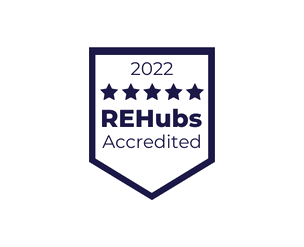
Teachers can request a free visit from one of our trained school speakers to talk about humanism by completing the ‘Request a school speaker’ form.
To find out more about how a Humanists UK school speaker could help you and your class, please visit the Understanding Humanism website.
The overall experience was excellent. From the initial email which was responded to quickly, to setting up a local speaker who contacted me immediately, to setting up a visit with ease, and finally the talk itself which was relevant, engaging and thought provoking. Thank you very much and I look forward to working with you again in future!
Aimee Horsley, KS5 teacher
How can parents or carers request a visit from a humanist school speaker for their child’s school?
If you would like one of our humanist school speakers to visit your child’s school, you should write to their headteacher to suggest that they request a visit from us. Click here for a template email that you can use, explaining why it is so important that young people have the opportunity to learn about humanism. If you do contact your child’s headteacher to suggest a visit, please tell us about it here.
…how wonderful your talks were this afternoon. You gave the children a fantastic insight into the practices and philosophy behind humanism. The children were captivated from start to finish and were delighted that you could answer their questions. Thank you for speaking so confidently and eloquently. It was a pleasure to have you here and we hope to see you again next year!
Tom Anstiss, KS2 teacher and year leader
How can I become a school speaker?
We offer free training for Humanists UK members who are interested in becoming school speakers. Please visit the school speaker training page to find out more and apply.
You can read more about the school speaker programme’s achievements and volunteers’ experiences in this article.
I’ve really enjoyed getting involved and the training has been excellent.
Rebecca Holmes, school speaker
Where can I find the School Speaker Area and Dashboard?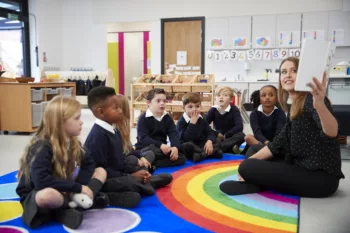
Only trained and active humanist school speakers can access the School Speaker Area and School Speaker Dashboard.
If you are a speaker, please use the ‘Login’ button on the top right of this page, and select ‘School Speaker Area’ from the dropdown menu that appears when you click on your name after logging in.
Humanists UK’s education work
Humanism is a non-religious approach to life shared by millions of people in the UK. The Religious Education Council of England and Wales recommends that humanism is studied in schools as an example of a ‘non-religious worldview’. Under the new Curriculum for Wales, humanism will be taught in Religion, Values and Ethics, and across the curriculum, as an example of a widely-held ‘non-religious philosophical conviction’.
Humanists UK supports a broad, balanced and inclusive education for all young people, and recognises the value of the spiritual, moral, social and cultural (SMSC) development of students. We feel the opportunity for children to learn about both religious and non-religious perspectives and values is essential, to foster social cohesion and mutual respect for all.
All young people deserve guidance on ways to discover truth, meaning, and happiness in their lives, and how to judge the difference between right and wrong. Humanists UK school speakers can contribute to this in primary and secondary schools by increasing students’ awareness and understanding of humanism. Drawing on their own life experience and knowledge, they bring an added dimension to the classroom by helping students people think about issues from a different perspective.

